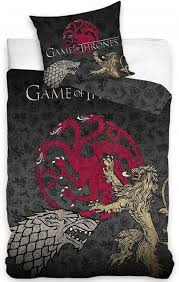The Enduring Legacy of Game of Thrones

Introduction
Since its debut in 2011, HBO’s Game of Thrones has captivated millions worldwide with its rich storytelling, complex characters, and intricate political intrigue. Based on George R.R. Martin’s book series, the show not only redefined the fantasy genre but also had a significant impact on television production and viewership patterns. The relevance of Game of Thrones persists even years after its final episode, making it a topic of interest for fans and scholars alike.
The Phenomenon of Game of Thrones
The show aired for eight seasons, concluding in May 2019. At its peak, Game of Thrones became one of the most-watched TV series in history, garnering an impressive 47 Primetime Emmy Awards, including Outstanding Drama Series. It attracted a diverse audience, becoming a social phenomenon that sparked debates over itsplot twists, character arcs, and philosophical themes, such as power, loyalty, and betrayal.
Despite a divisive final season, the legacy of Game of Thrones continues to shape the entertainment industry. Special effects technology, deeply layered narratives, and high production values have set a new standard for television. Networks and streaming services now strive to capture its glory, leading to a surge in high-budget fantasy series, with titles like The Witcher and Shadow and Bone.
The Cultural Impact and Future Prospects
Beyond television, the impact of Game of Thrones can be seen in various media, including merchandise, video games, and even board games. The show’s influence extended to mainstream culture, inspiring countless memes, parodies, and references in other media. This level of engagement demonstrates how deeply the series has entrenched itself in popular culture.
Looking ahead, HBO has announced several spin-off series set in the world of Westeros, the most prominent being House of the Dragon, which details the Targaryen civil war. These new ventures underline the fact that while the original series has concluded, the story isn’t over. Fans eagerly await new narratives and characters, and it seems the world of Game of Thrones will remain a fresh source of inspiration.
Conclusion
The cultural significance of Game of Thrones cannot be understated. It changed the landscape of modern television and bridged a gap between traditional fantasy storytelling and contemporary viewing habits. With ongoing discussions about its lasting impact and the potential success of upcoming spin-offs, fans can expect to see the echoes of Westeros in both media and culture for years to come.









